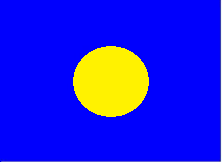FEDERAL EUROPE
A STRONG EUROPE
IDEOLOGY
FEDERAL EUROPE ideas originate from the book "Towards the european federal Republic " and from the book "The State and Class Struggles" written by Davud Khan. He studied political science and history.
The book "The State and Class Struggles" consists in a systematic analysis of class historical evolution and of State historical evolution. It relies on a philosophical and scientific basis, and upon the notion of social progress within the framework of the hierarchy of the 4 social functions. (ideological, state, productive and labour) and of national progress via unification of the major cultural areas (notably the european one) which form grand nations.
The ideology of the movement is thus a culturalist ideology. FEDERAL EUROPE is thus a right wing party, with a strong social component. It aims at rallying pro european federalist conservatives and liberal democrats. It is opposed to so-called progressives who are in reality libertarians whose goal is usually not progress but societal disorder (gender theory), economic and social disorder (excessive competition), political disorder (refusal of a presidential type of regime) and national disorder (unrealistic universalism).
The ideological, political and historical training of party members includes:
Ideological training:
Philosophical basis
Scientific basis
Culturalism
Hierarchy of social functions
Class evolution
State evolution
European identity
European construction: Union and Federation
Political training:
Programme:
European patriotic values
European State construction logic
Market economy necessity
Industrial policy necessity
Social values and working class importance
Foreign and defence policy orientation
Strategy:
Political target and target expansion
Ideas diffusions
Militant recruitment
Campaigns strategy
Organisation:
Territorial
Staff
Control
Party structure.
Party hierarchy.
Party tenets.
HISTORY OF EUROPE
A/ Germanic peoples and Romans
European unification
Germanic Tribes -800- -486
Roman Republic -753- -52
Roman Empire -52-476
Frankish Empire 486-888
Holy Roman (German) empire 962-1521
European warring States
Austria 1521-1748
France 1748-1871
Germany 1871-1945
European Reconstruction
Franco-German axis in EU 1945-present
Greco-Roman Cultural imports through the Roman Empire, the Catholic Church, the Renaissance and the Enlightenment
Main sublines within the Germanics : Franks
Supplementary sublines within the Germanics: Wisigoths, Ostrogoths, Angles, Scandinavics, Lombards
B/ Others (Same pattern of cultural imports):
1/Greeks and Macedonians (-1200)
Celts (-800)
Slavs (-700 West Slavs and south Slavs),
Italics
Thracians
2/Central Asian Europeans: Hungarians, Avars, Huns
3/Other minorities living in Europe
Main European unificators: Caesar, Clovis I, Charlemagne, Otto I, Friedrich II, Innocent III, Charles V, Napoleon I, Richard Coudenhove-Kalergi, Robert Schuman, Jacques Delors,
Sources and bibliography:
Aux sources de la civilisation européenne, Henri-Jean Martin
Europa notre histoire, Collectif (Les Arènes)
Nos ancêtres les francs, Marie Pinsard
Europäische Kulturgeschichte. Eine Einführung. Erweiterte Studienausgabe, Slvio Vietta
Europäisches Kulturerbe, Wolfgang Bittner (Neu Rheinliche Zeitung)
Pan-Europa, Richard Coudenhove-Kalergi
